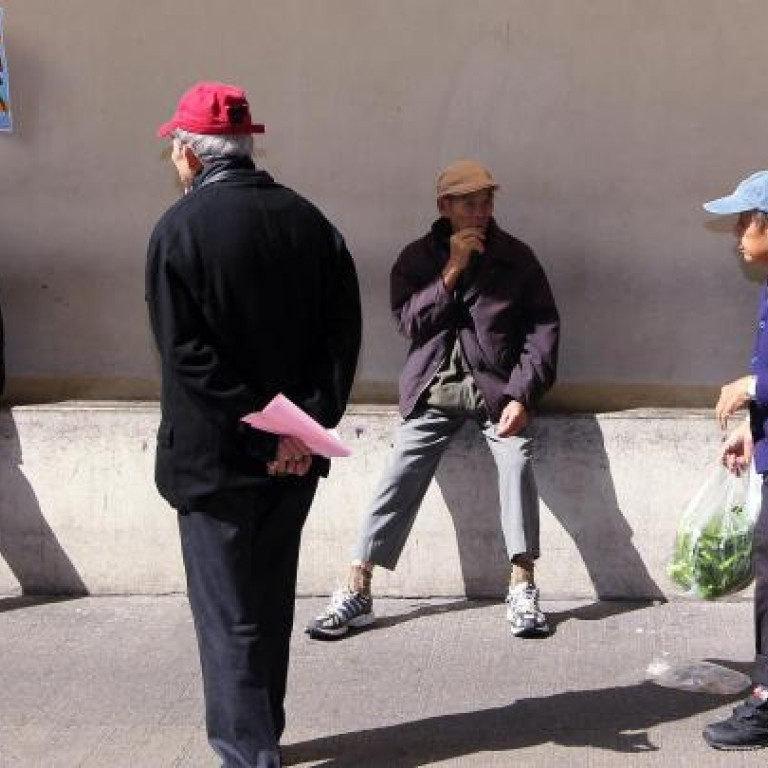
CY could tackle elderly's housing problems in policy address
Hopes high chief executive will force developers to add flats with healthcare facilities to projects
Chief Executive Leung Chun-ying is expected to give a clearer picture of how the government intends to tackle the problems caused by the city's ageing population in his policy address.
His speech is expected to include a roadmap for policies that will offer a better living environment for elderly people. A source familiar with the situation said the government was considering releasing land for the building of nursing homes and may also require such facilities to be offered in private residential developments. But advocates for the elderly people want more.
"We hope his ageing policies will cover housing, retirement protection and healthcare services. It should also feature measures to allow elderly to stay in the workforce," said Professor Alfred Chan Cheung-ming, chairman of the Elderly Commission, who gave recommendations to Leung.
By 2041, one in three people in the city will be over 65, according to government projections, compared with 13 per cent last year.
Terry Lum, director of the Sau Po Centre on Ageing at the University of Hong Kong, said nursing homes were not a long-term solution.
"It goes against the principle of 'ageing in the community' that the government has advocated for years," he said, referring to the idea of elderly people living out their last years in their own homes.
About 6.8 per cent of all Hongkongers aged 60 or above live in nursing homes, compared to 2 per cent in Taiwan, 3 per cent in Japan, 2.3 per cent in Singapore, 3.9 per cent in United States, and 4.2 per cent in Britain.
But Lum says 82.5 per cent of residential care services for elderly people are funded by the government in various ways, making such a high proportion unsustainable. A third of public housing estate residents are elderly, but the buildings' designs are not adapted to the needs of the sometimes frail and weak population. There is also a shortage of flats for elderly middle-class people. Flats for the elderly might include facilities to help them cope in the home, and on-site healthcare facilities.
The city's only "developer" of flats for the elderly is the Housing Society, a non-profit organisation. It has, so far, been allocated only two sites upon which it will build flats for middle-class elderly people.
The society's chairman, Marco Wu Moon-hoi, said many old people were put in nursing homes "prematurely" due to a lack of healthcare service and facilities.
"Their health deteriorates quickly after moving into the nursing home, which only offer a bed space," he said. "They start to suffer from depression, as they are forced to live away from their families.
"We said to the last government that we need to address demand by building more flats, but we did not get a response. We hope this government will give a clear direction."
He said developers had no incentive to build flats designed for older people.
He urged the government to force developers to provide flats for elderly people with healthcare facilities. "It will allow cross-generational interactions," he said.
In his election platform Leung pledged to assess the demand for housing for elderly people, but no action has been taken yet.

